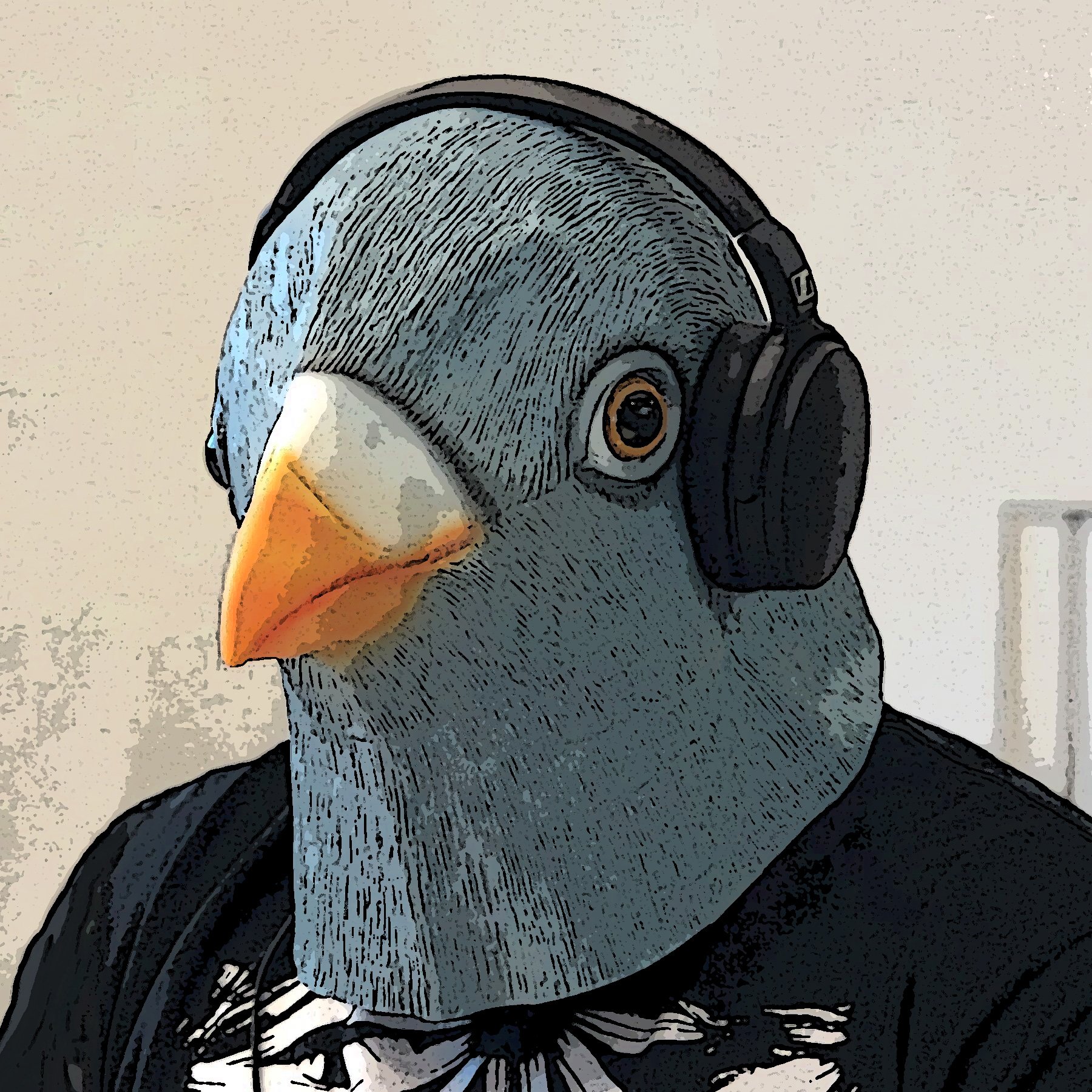If buying isn’t ownership then pirating isn’t stealing
Oh but it’s not buying! The big “Buy” or “Purchase” button might have said so, but if you’d have careful read through 35 pages of user agreements, you’d see that you only rent the license to stream it.
Which obviously is total bullshit and the whole fucking system should be burned to the ground.
This is precisely why I refuse to buy digital games. (And it extends to other media, but games are where I actually spend money)
I’ll pay for a rental service designed to be a rental service (ps+, for example) but will not buy individual games digitally. Who knows when they will become unavailable for some reason, and I can no longer download a copy. It’s bad enough when servers are shut down within 2 years of launch, but when the whole game gets pulled, then what?
I’ve decided I’m not even bothering with the next generation of consoles. So few things are even released on disc, with half the consoles being digital only, that it’s not even worth it. I’ll pirate instead.
This is where the law needs to step in, it should be illegal to call it “Buy” if you are just leasing it. It’s absolutely misleading to most consumers.
Pirating isn’t stealing either way.
Also, copyright infringement never even used to ever be a crime, although now there is a form of criminal copyright infringement, if it’s done for money or if the value is above a certain amount. Thanks to lobbying from wealthy industries. Most copyright infringement still is not a crime, though.
The reason industries lobby for harsher copyright laws is because they know they can make more money if people can’t pirate. They take the piss with their pricing, but they’re acutely aware that if they take the piss too much then people will turn to piracy. By prohibiting piracy and levying harsh penalties they can get away with even more unfair pricing, and maybe even profit from piracy through punitive damages (which is mainly a US thing, most sensible nations only allow you to sue for actual damages).
It is. You’re stealing income from the person that created the thing you took and didn’t pay for.
By that logic, creating a competitor and wooing over customers would also be theft.
Note they are not saying piracy is legal, or that it’s not a tort. They are saying it’s not theft, and it should be discussed separately, as we criminalize theft because someone loses their property, not because the thief gets free shit.
Creating a competitor is not the same logic at all. That competitor gets paid when someone buys their product.
The issue is that time and effort are put into something that is being made to get compensation for that time and effort, not to be given away for free. If you’re going to a competing product, you’re not ingesting the initial product without paying for it.
I’m not arguing legal definitions. I’m arguing against the bullshit mental gymnastics that piracy is not stealing. It is. Just admit it and move on. I don’t care if people pirate. I just can’t stand the dishonesty of trying to justify theft. If you ingest something that an artist made to try and make a livelihood and don’t pay them, you’re stealing that livelihood.
No, it’s exactly the same logic.
The argument that digital piracy is theft is predicated on the idea that pirating is depriving the creator of their rightful property: the money from a sale. In the absence of said sale, that money wasn’t their property to begin with, however. The only way to reconcile this is by treating potential income as property.
In doing so, a number of stupid things can be argued for:
-
Creating a new product is theft because it deprives the competition of their potential income.
-
Boycotting a company is theft because it deprives them of potential income.
-
Not purchasing a new phone is theft because it deprives the manufacturer of potential income.
-
Not hiring Tom because Bob was a better candidate is theft because it deprives Tom of potential income.
There’s a reason that piracy legally falls under copyright infringement rather than theft. You aren’t depriving the creator of property by making a new digital copy of their media, but you are violating their copyright by creating an unauthorized copy.
It is not the same logic. You are not ingesting the work of the creator by going to a competitor. The issue is that you are gaining something from the labor of the creator without compensating them for that labor (which they gain from). It is an unequal exchange that both parties have not agreed to. It is theft. Going to a competitor and buying from them is an equal exchange - you’re paying money for the product of their labor.
Everything else you’ve said continues to be dishonest because it is based on this very simple, fundamental flaw in your original argument.
You are still off the mark. Profiting off someone else’s work is not theft. Maybe a crime, maybe immoral, but it’s a separate concept. Theft specifically is bad because you lose something you have. Copyright infringement is considered bad because we want people to be incentivised to create original stuff, and we want people to feel like if they create original stuff, they get to have special rights over it.
You don’t steal an IP by piracy, you infringe on it. If you stole it, the original owner would not have it. The whole argument around theft and piracy is that by equating theft with piracy, we get to a false dichotomy that if we don’t prosecute the random pirate or OpenAI for infringing on copyright, we can’t prosecute car thieves or wage thieves or whatever either in all fairness. Which is not true. Societies with the concept of property but without the concept of copyright did and do exist.
It’s all fair if you say copyright should be protected, and infringement punished, but it’s as much not theft as it is not murder. I mean, since you harm IPs by piracy, and one can argue excessive piracy can “kill” an IP, would making a pirate copy be assault with a deadly weapon? Or vandalism? That’s why words have meanings, and different things have different names.
-
That competitor gets paid when someone buys their product.
What if I don’t sell it? If someone opts to use FreeCAD instead of Fusion360, did FreeCAD steal income from Autodesk?
Another dishonest argument. FreeCAD is explicitly granting people use of its product for free. They are not selling it. If someone opts to use a free product instead of a paid one, that is not stealing income from the creator of the paid product because you’re not using their product. The entire issue at hand is that people are using the product and not paying for that use.
What about Autodesk pissing in the face of users who bought a “lifetime” license, not only superceding their product but degrading it such that it doesn’t work anymore?
You should pick your examples more carefully.
You should also take an objective position and consider that not all rightsholders are acting in good faith. But then, in order to do that, you would have to be acting in good faith.
You eating data?
Ingesting something doesn’t only mean eating it. It literally means “to bring into”.
I wish piracy was stealing income, I need some of that income.
It is stealing income. You’re taking advantage of the result of someone’s effort and time without compensating them for it. No one is ok with that in any other context but y’all bend over backwards to justify it unilaterally here as opposed to denouncing this behavior (the Crunchroll behavior, to be clear) as its own issue that is also wrong.
The workers already got paid. It’s executives that are being “stolen from.” ( I’m too broke to buy it anyways)
That’s irrelevant. That’s not the case with all media, especially anime, when the creators are the owners and executives of many studios. Even if it was, it doesn’t change the calculus that the work is being sold.
If you weren’t gonna buy it anyway and since the creator doesn’t lose anything, how can it be stealing?
And on top of that, it offers the creator exposure and creates new fans who one day might buy some of their products.
Another example: if I go to an art gallery and look at paintings every day without ever buying anything, is that stealing? I’m ingesting their art daily for free. No, I’m not. That’s the purpose of art galleries. But painting has been a thing for thousands of years, we’ve had time to adapt to it. Not the same thing with digital media. It came about after all these definitions and laws. Which is why we’re having this conversation. And because corpos are greedy, we’ll probably keep having this conversation forever
That’s just factually untrue. The ‘creators’ are just animators that work for animation studios that get paid by companies like funimation, amazon and Netflix to publish content and those middle men reap the majority of the benefits. Very very rarely do actual individual people make a percentage of whatever a work earns. It’s just middle men executives that earn that.
I would argue that piracy helps make them more money anyways. The actual money is in merchandise. If I’m able to pirate an anime and really like it I’m more likely to spend money on merchandise VS me not bothering to watch a show and not buying merch.
Here’s an article proving that the actual creators don’t make much money at all and it’s not because of piracy.
That’s not stealing lol. If I pirate something or if I don’t, the creator sees no difference.
Stealing income would be reducing the income for the author (piracy doesn’t alter it) and you getting it instead (you don’t).
That’s both dishonest and factually untrue. If you’re ingesting the creation without paying for it, then you’ve stolen it from the artists because they didn’t create it for free (unless they explicitly have). The creator sees a difference because you wouldn’t have been able to ingest their creation without paying them for it.
Theft requires you to deprive the original owner of their property.
Creating a digital copy does not prevent the creator from accessing or selling their property. Potential income is not property; it was never in their possession to begin with.
Don’t worry, you’re correct and these people are just uncomfortable to define this as theft (if you didn’t pay something to someone prior.). If you didn’t pay, it’s theft, and it doesn’t matter what background revenue sharing agreements exist.
By this logic, everything you don’t buy is stealing income. Every item you walk past at the grocery store was made by someone for money, and by not buying it, you’re denying them that income. How dare you eat at a friend’s house for free?
No, it’s not. If you are just walking past that item, you’re not consuming the value of that item. If you’re being honest about this argument and attempted to make the analogous argument, you wouldn’t be watching the movies that you’re not paying for. The entire issue is that you’re not just walking past the items at the grocery store, you’re eating them and not paying for them. A better analogy would be grabbing a magazine off the rack at checkout and taking pictures of all the pages and not paying for it. The magazine is still there and the store was deprived of nothing but yet you’re now able to gain the value of that magazine’s content without paying for it. That’s still stealing. You can either pretend it’s not or you can say “Yeah, it’s stealing but I’m ok with that because those magazines are garbage anyways”.
Lemme use a different, better example. Say I buy used copies of everything I watch. How is that different from watching shows on sketchy streaming websites? Either way I consume the media and the people who made it get nothing. If anything, it seems worse to me for me to lose money and the creators to gain nothing, while some random person on the internet profits from reselling their work after they’ve already consumed it.
That’s not a better example. You’re comparing a physical item with tangible scarcity to an intangible product. While you’re reading that book, no one else can read that. There is only 1 copy of it. Someone can get another copy of it but the one you hold is physical. Movies and other digital content is intangible. It’s not bound by that scarcity.
It would be worse for you to “lose” money and the creators gain nothing but that’s not the situation you’re discussing. We’re discussing a situation where you gain something and the creator gains nothing.
You’re comparing a physical item with tangible scarcity to an intangible product.
And you’re ignoring the fact that the producer treats their digital product with no real scarcity as if it was a physical product that cost a significant amount to produce and distribute. By your own reasoning, the digital product should be much cheaper.
If it wasn’t for piracy, the product (digital or physical) would be even more expensive. As it is, producers know that if they price too high people will turn to piracy, if that wasn’t an option then there would be nothing holding them back.
It would be worse for you to “lose” money and the creators gain nothing but that’s not the situation you’re discussing.
That is literally the situation I’m discussing. I want to watch Haibane Renmei. My options are a) find whatever streaming service has the rights to it, pay them their toll, and have temporary access to it, b) find a streaming service that doesn’t have the rights to it, don’t pay them anything, and have temporary access to it, c) find a new copy of it that gives money directly to the original creators, or d) find a used copy of it, and give money to some random person on the internet. Edit: there’s also e) renting the DVD from Family Video. Functionally the same as D, re: the creators getting their money from me watching their show.
The only one of these that you seem to have a problem with is B, and I don’t think that’s morally consistent. You’ve been saying time and again that piracy is wrong because I gain something while the creators gain nothing, and that’s exactly what happens when I buy a used DVD.
Piracy is defined as a civil offense, meanwhile theft is defined as a crime. Theft is also defined as depriving someone of something - eg, if I take your bike, you no longer have a bike, but if I copy your bike and build my own then you still have your bike and haven’t lost anything.
“Potential lost income” is abstract, it doesn’t necessarily exist and the victim of copyright infringement isn’t really losing anything - they don’t even provide the bandwidth you download it with. Ultimately 1 pirated download =/= 1 lost sale, as people download more crap than they would be willing to buy.
I’m not arguing the legal definition of this so everything you’ve said is irrelevant.
The legal definition is THE definition, it’s literally what the word means, and where the concepts of both originate.
What you’re saying isn’t irrelevant, it’s just completely ignorant and wrong.
I have to agree with Zoolander on this one very particular point: the legal definition of a word isn’t the only definition of a word. For example, civil asset forfeiture is objectively armed robbery, but because it’s the police that do it, it’s not legally armed robbery.
Funimation taking your purchases away from you is theft by any reasonable definition of the word, but they won’t see any legal consequences for this.
Zoolander is absolutely wrong about piracy being theft though
Yeah sure, it’s not the only definition, but it’s the most detailed one.
Copyright infringement is similar to theft, in that both involve the loss of a potential sale. Theft is unique in that it includes a more significant loss as well - the tangible item that is was taken and is no longer under the control of the rightful owner.
Funimation taking your purchase away is also not theft, because of the details of the licensing agreement. However, it is still patently wrong, in the same way that copyright infringement is wrong. You paid for a thing, you had a reasonable expectation that the thing would continue to be available, it suddenly not being available with no recompense is harmful.
I’m really hoping that YouTuber Ross Scott (Accursed Farms) goes ahead with his lawsuit against Ubisoft after they shut down The Crew. I’m really gunning for that. Unfortunately, so far YouTube lawyers (Legal Eagle and Steve Lehto) haven’t got back to me with their opinions, but I still think money could be raised to form a proper class action. We really need clear definitions formed on digital rights - win or lose - and the best way for that to happen is if people take it to court.
Even if the lawsuit ends in a loss, it will be far better to have a clear definition of what things are sold as. Businesses shouldn’t be selling services with a finite lifespan as if they’re a good you can own indefinitely. Plus, clear boundaries would open up the market for people to openly sell actual goods that people own, distinctly different from the services that businesses want to rent.
The legal definition is not the definition. That is just nonsense. There are an innumerable amount of terms that have a literary definition that is not the same as the legal definition.
You’re trying to say that your definition is the only valid one, which conveniently is one that your argument is entirely reliant upon.
It isn’t valid, you’re wrong, your argument does not hold water.
Since your augment is not moral, semantic or legal how is it not also “irrelevant”?
…If nature has made any one thing less susceptible, than all others, of exclusive property, it is the action of the thinking power called an Idea; which an individual may exclusively possess as long as he keeps it to himself; but the moment it is divulged, it forces itself into the possession of every one, and the receiver cannot dispossess himself of it. it’s peculiar character too is that no one possesses the less, because every other possesses the whole of it. he who recieves an idea from me, recieves instruction himself, without lessening mine; as he who lights his taper at mine, recieves light without darkening me. that ideas should freely spread from one to another over the globe, for the moral and mutual instruction of man, and improvement of his condition, seems to have been peculiarly and benvolently designed by nature, when she made them, like fire, expansible over all space, without lessening their density in any point; and like the air in which we breathe, move, and have our physical being, incapable of confinement, or exclusive appropriation. inventions then cannot in nature be a subject of property"
–Thomas Jefferson
This is a dishonest response. Movies and media are not ideas. They are representations of ideas that take time and effort to create and that are created so that the artist that made them can make a living and pay their bills. Stealing those representations without compensating the artist for their time and effort means they can’t pay their bills which means they have to stop creating in order to get a job where the fruits of their efforts aren’t stolen.
it’s peculiar character too is that no one possesses the less, because every other possesses the whole of it.
That statement makes no sense in this context, regardless of whether I reflect on its poor grammar or not.
Sure it does, you just don’t like the substance of it.
I kind of respect you for arguing your point in this entire commet section, while so many people are piling on you. I still think your argument/opinion is wrong though.
I didn’t convince them to make that shit. I’m in no contract.
Licensing isn’t ownership, and pirating isn’t stealing, it’s copyright infringement.
The previous comment is more like shorthand, rather than literal truth.
It’s faster to say piracy isn’t stealing if purchasing isn’t ownership than it is to say “if a company can simply reverse a permanent access license at any time then pirating media from them is perfectly ethical and should not be considered a crime”
It’s bad shorthand though. In this context, there was never any “buying content” happening, nor was piracy ever “stealing”. It’s just misrepresentation of both sides.
That’s fair, but I feel like the point is that many people go through a process where
- You pay money
- The buttons on your screen say “buy” “purchase” “check-out” or something else to that effect
That feels like buying media, so according to the common “consumer” (hate that word) brain, you are spending money to buy content.
At the same time, media corps have been trying to teach us for years that piracy is exactly the same as stealing.
The whole point of the shorthand is to explain that these are not facts, they’re misconceptions, AND both of these misconceptions exist for the same reason, corporate propaganda.
That feels like buying media
It doesn’t just feel like it, it says it. What it is is false advertising. If you don’t get to keep it forever, the button should say something along the lines of “rent until we decide to stop hosting it”.
Come up with something better then.
Why?
Because you’re bitching about it. Either there’s a better way to express the precise picture you’re describing, or your central argument is fundamentally flawed, and it’s an effective shorthand.
Sure, there’s nuance. Shorthand is used to convey a nuanced thought quickly. That’s literally the point.
Lol “bitching” about it.
Weird logic. Pointing out something that isn’t accurate but gets parroted anyways means I need to come up with a better thing to parrot.
Infringe me harder daddy ©👄©
It is stealing. I don’t understand the mental gymnastics here. You’re stealing income from whoever created the content if you’re not paying them for your ability to watch it.
How are you stealing income if there was no intention to pay the company to begin with? Even if there was an intention to buy it, companies aren’t entitled to consumers’ money. This is especially the case if the consumer has previously purchased a license to consume the product, and then the company decides to take (or steal) it away. No moral qualms with pirating the same content then.
It’s digital data; you’re copying something, leaving the original completely intact. It’s not like a physical BluRay, where if you steal it from a store, you are making that store lose money due to that physical stock being stolen.
And lastly, how is the company not stealing from consumers when they pull shit like this?
How are you stealing income if there was no intention to pay the company to begin with?
Theft does not imply the intention to pay, that’s kinda the whole point.
Even if there was an intention to buy it, companies aren’t entitled to consumers’ money.
They are if you take something they created.
It’s digital data; you’re copying something, leaving the original completely intact.
I don’t understand what that has to do with anything. You’re copying something someone else created, for the express purpose of generating income, without their permission.
I don’t know how these justifications can be described as anything other than “mental gymnastics” because they obviously make zero sense and personally benefit you.
I don’t understand what that has to do with anything. You’re copying something someone else created, for the express purpose of generating income, without their permission.
Who said anything about generating income off of pirated work?
Theft does not imply the intention to pay, that’s kinda the whole point.
The definition of theft according to MW: the felonious taking and removing of personal property with intent to deprive the rightful owner of it
If you do not deprive the original owner of the property (such as: copying), it is not definitionally theft. Legally speaking, it is considered copyright infringement.
Who said anything about generating income off of pirated work?
No one. The person who did the work did so with the intention of generating income.
Legally speaking, it is considered copyright infringement.
Does it really matter? What’s the important differentiation there?
You hit the nail on the head. That’s why they’re downvoting and arguing. It personally benefits them to steal.
I’ve said it several times here…I don’t care if people pirate stuff. There are a myriad of reasons to do so. My issue is with the dishonesty of pretending it’s not stealing. Keep doing it, I don’t care, but own up to what you’re doing and admit it’s stealing.
It’s mental gymnastics because they need to be able to continue stealing but don’t want to feel bad about it.
Even if there was an intention to buy it, companies aren’t entitled to consumers’ money.
Then you’re not entitled to ingest the content being created by that “company” (doesn’t have to be a company, it could be a single artist or a small group of artists).
Taking away licenses is wrong. I’m not disputing that. But that doesn’t magically make stealing something that actual people created right.
Then you’re not entitled to ingest the content being created by that “company” (doesn’t have to be a company, it could be a single artist or a small group of artists).
Are you making an ethical, moral, or legal statement here?
Ownership of intangibles in this context exists only as a means to support a particular political arrangement. I think you may be assuming others here share your politics; there is no objective moral standard for exclusive ownership of intangibles.
By that argument, there is no moral imperative for people to create intangibles as they have no value. If someone creates art that you like, they deserve to be paid for the time and effort it took to create that art whether the art itself is physically tangible or not. If you don’t agree to that premise, then there’s no point in discussing this with you.
there is no moral imperative for people to create intangibles as they have no value.
You’re right, there is no moral imperative for people to create (or share) intangibles, but nobody is claiming they have no value.
If someone creates art that you like, they deserve to be paid for the time and effort it took to create that art whether the art itself is physically tangible or not.
Again, is this a ethical, moral, or legal statement? It strikes me as a uniquely ideological statement, but you’ve not elaborated.
It is not stealing. The mental gymnastics are when you try to claim that it is.
You’re stealing income from whoever created the content if you’re not paying them for your ability to watch it.
It’s just as much “stealing” as me not watching it at all.
I’m infringing on their copyright, absolutely, but I’m not taking anything away from them that they could otherwise profit from.
You can’t reason with him. He is an anti-piracy troll.
For him, any comparison made to help him understand is a logical fallacy and any evidence presented against his argument is “irrelevant” as he puts it.
It is like arguing with a trump-like narcissist lol. “My argument counts and yours is wrong, but if yours is right then it is irrelevant, made up, and/or a straw man. If I don’t understand something then it is an attack and I will insult you and instantly label you inferior.”
It’s sad honestly and just like them all he is all “think of the poor artists who created the media you love” while conveniently ignoring that in the music industry, many/most artists don’t even get royalties because the record labels swindled then forced them to sign their lives and works away getting a couple pennies on the dollar.
Video game industry is salaried. All profits go to the corporations outside of indie games. Movies, outside of the big name stars, earn almost poverty wages and absolutely 0.00% of what gets sold because the studios are so incredibly corrupt.
Not to mention dead artists where unless they were extremely smart, their families are likely earning 0% of sold media.
Also not getting into the fact that copyright used to be very short until large corporations bribed lawmakers constantly and for so much corrupt money that they changed copyright to extend an extreme amount of time, otherwise things from the 90s would already be public domain if there wasn’t so much blatant bribery and corruption done by the people you are “stealing” from.
Unless you are pirating things from Dolly Parton or someone who was business savvy enough to not get cheated by the studios, you are not stealing from the artists in any crazy mental gymnastic stretch of the imagination.
Piracy, at the very worst, is stealing from long time hard criminals. There is not a single big record corporation that has not committed a multitude of thefts, blackmail, drug dealing, bribery of government officials, and worse. That isn’t even getting into the crimes of porn studios and movie studios. Disney mass murdered animals on camera for views as one example.
No it’s not. If you don’t pay for it, you don’t watch it. If they’re not entitled to your money, then you’re not entitled to the product of their time, effort, and labor.
Then why is digital piracy legally considered to be copyright infringement instead of theft?
That’s irrelevant. I’m not arguing the legality of it.
If i could just teleport into your house so i could liberate your keyboard, i would. Because your take is so collosally stupid that it actually angers me that you have it.
Like real, palpable rage that this insipid argument still exists in this world, after all this time.
Ahh yes… the tried and true ad-hominem. No actual argument against the point, just childish name-calling and insults. Grow the fuck up.
An ad hominem would be if i avoided your point and instead attacked you as a person. I attacked the point itself as frivolous and years-debunked. Please… Listen… Your keyboard is suffering under the weight of false premise. Free it, please
Saying your argument is stupid isn’t attacking you, dude.
That’s a valid opinion. It doesn’t change the fact that the crime is copyright infringement, not theft.
I’m not arguing the legal or criminal semantics. I’m arguing the dishonest justification and misrepresentation of piracy. Piracy is stealing. You’re stealing income from the creator if you ingest their work without paying for it. I don’t care if people pirate things but admit that it’s stealing and move on.
Piracy is stealing.
No it is not. By any definition.
You can think it’s morally wrong, that’s fine. But it simply, factually is not stealing.
That’s the only point I’m making.
No it’s not. If you don’t pay for it, you don’t watch it.
A friend bought a movie, invited me and 12 other people to watch it. Are we supposed to be legally required to say no?
LOL they know it’s stealing. Some of them will even blatantly admit it with no guilt.
Here’s the question though: if you click the button that says “buy” and give them money, but you don’t actually own it, have they stolen from you?
If you “bought” a printer and then like a year later the company comes back and says “actually no” and takes your printer back, is that stealing? And if you go back to that company’s warehouse and take it back from them, is that also stealing? 🤔
LOL they know it’s stealing. Some of them will even blatantly admit it with no guilt.
Wait, do you think people that pirate things all have the same beliefs or something? Such a weird way to logic. 😅 Truly, that’s a new one.
No I just think some of them are more honest about it than others.
Well that’s certainly a convenient way to validate your own beliefs. lol
“Everyone that disagrees with my worldview just isn’t being honest!”
Stay scientific, friend
Well that’s certainly a good way to misrepresent someone else’s beliefs. LOL
“I’ll just make up some bullshit they didn’t even say or imply and put it in quotes like they did!”
Well, that’s a different argument. I believe it is also dishonest to have a “Buy” button for something you don’t actually get to own (that’s bullshit).
Digital media should be bought the same way as physical media.
If I had my way, you’d be able to watch media first and then decide to pay for it. Better yet, you pay for it in advance, watch whatever you want, and then decide how your payment got divided up amongst the artists and creators that you feel deserve your money for their work.
Stealing this stuff, which is what piracy does (and ai have no issue with for all kinds of reasons), only results in the people who made things you want to watch not getting paid to make that stuff.
Stealing this stuff, which is what piracy does (and I have no issue with for all kinds of reasons), only results in the people who made things you want to watch not getting paid to make that stuff.
Would make sense if the artist was independent, but corporations pay either a wage or a salary. It is rare for an artist to be paid a percentage of revenue for that product, so the only ones who would be affected by piracy are the corporations who did not directly create the art.
If I had my way, you’d be able to watch media first and then decide to pay for it. Better yet, you pay for it in advance, watch whatever you want, and then decide how your payment got divided up amongst the artists and creators that you feel deserve your money for their work.
That would be great, but that is not the case for the vast majority of media. Generally-speaking, media is encumbered with DRM, which prevents the consumer from being able to copy the data or watch it in any way they deem fit (see: streaming services requiring hardware DRM for 4K streaming, even when they charge extra for it)
Well, that’s a different argument. I believe it is also dishonest to have a “Buy” button for something you don’t actually get to own (that’s bullshit).
So, given that this is not an option for the vast majority of content, the only alternative where consumers maintain full control over their own media-playing devices is to download a DRM-free copy.
As Gabe Newell famously said, piracy is a service issue. Steam also has the same problem of lack of ownership and DRM, though, so its users are at the mercy of Valve to not revoke access to purchases.
GOG is one company who does it right, IMO. Sell only DRM-free copies of games, and allow people to download their copy and back it up to whatever media they want to put it on. This type of practice is rare in the media world, though. Most media companies require DRM on their product in order to license it out.
Also on the first point, independent producers of content generally don’t put DRM on their work anyway, so no reason not to buy their work.
This is an entirely separate and dishonest argument. I’m not arguing anything related to DRM or the structure of the market that creates some content.
This is an entirely separate and dishonest argument.
My point about DRM is highly relevant in this case, because a consumer cannot own something that is encumbered with DRM. They are renting a license for that product, even if the button they click on says “purchase”, since, hidden in the EULA somewhere, the company decided to redefine the word “purchase”. The company will always be able to revoke that license without notice or permission from the consumer, let alone a refund or any kind of compensation.
Relevant Louis Rossmann video: https://www.youtube.com/watch?v=o4GZUCwVRLs
Stealing this stuff, which is what piracy does (and ai have no issue with for all kinds of reasons), only results in the people who made things you want to watch not getting paid to make that stuff.
Are you saying that if I pirate a movie from 2019, the actors have not been paid for their screentime yet and won’t be paid until I buy the movie in, like, 2028?
👆
AHHHH I love seeing my own meme spread!!!
I’m starting to think that everybody’s thinking about this the wrong way. But I think really needs to happen is they need to be sued to oblivion with a class action lawsuit. They can say whatever they want in their user agreement and do their best to get away with it but if it’s not enforceable in court then it needs to be shot down and shot down completely. This needs a class action lawsuit. There need to be several class action lawsuits. One against them, one against Sony and so on.
They have a lot of money and they might win in court maybe but they should at least be challenged in that venue.
A clarification that really only makes this worse: Crunchyroll did not acquire Funimation. Funimation acquired Crunchyroll, and decided to use the Crunchyroll name instead. They have had every opportunity since the merger to support people’s purchases, but have chosen not to.
Tired of honoring your contracts? Simply purchase a different company and hide behind their name.
Or in the case of Comcast or Facebook, just rebrand without having to buy another company.
Or if you’re Google, create another company under a different name, split yourself up, then buy everything under that new umbrella (Alphabet). That’ll keep the antitrust enforcers at bay…
Also change your Don’t Be Evil motto, so your investors know that you decided money is more important than ethics.
This is incorrect. It was a merger. Sony owns both Crunchyroll and Funimation. That being said, the servers didn’t magically disappear. Media could 1000% have been consolidated.
Sony owns both now, but Crunchyroll was purchased from AT&T in 2021. Sony purchased Funimation in 2017. So while it is perhaps not 100% accurate to say that Funimation itself did the purchasing of Crunchyroll, the company that owned Funimation did.
Edit: it is also worth mentioning that after the acquisition there was an immediate decrease in new content added to Funimation, and within a couple seasons there was virtually none, as customers were being pushed to the Crunchyroll app. Many, but not all, Funimation shows were also copied to Crunchyroll, but none the other way.
Crunchyroll is subscription only, right?
I believe that part of the catalog is still free with ads, but most recent stuff is not. They’ve changed their policies a few times, and I haven’t kept up with the details.
I had no idea Sony owned both now.
This is obviously the outcome given its Sony.
They probably bought all the lube they’d need to fuck everyone over before the merger was proposed at a board meeting the person with the idea was so excited for it.
They couldn’t even transfer over everyone’s watch history like they promised. They can’t even manage to apply multiple audio tracks and subtitles to the same videos, so each dub is displayed like it’s own season and when youre done a series it just starts playing episode 1 in German right away. Their newly added page is full of old titles that just had a Hindi dub uploaded.
They’d have an easier time getting to mars than letting people transfer their purchased videos over.
But crunchyroll paid video game YouTubers to promote it a decade ago, so it was the brand that won out. Never mind that all these problems did not occur on the funimation website. Never let anyone ever tell you that advertising isn’t important, it’s more ten times more valuable than good coding or engineering.
They can’t even manage to apply multiple audio tracks and subtitles
This is the worst thing.
It’s not even smart enough to finish the episode and not switch over to some other translation, so watching Simulcast is super painful.
Yeah and then the episode 1 dub sits there in your recently watch, blocking new episodes from appearing when they come out
The dub problem is a Crunchyroll problem, in my experience, having been a Crunchyroll member before the merger. Dubs on Crunchyroll where a complete mess, each time they tried to fix it, it got worse. As you mentioned, dubs being displayed as seasons.
After the funimation buy out, I see dubbed titles being fixed, and more dub options being added.
Just a couple of weeks ago I used a free trial on Crunchyroll and none of that is true, at least for the 3 titles I watched (My Hero Academia, Jujutsu Kaizen, and Demon Slayer). The audio tracks were selectable in the video player, as were the subtitles.
Also, the subtitles were absolutely top notch, with translations of Japanese text appearing just next to the original, at the same angle and with the same colours, and without obscuring the original text.
I haven’t heard about any shoddy business before seeing this post, but that could be because I haven’t looked for it.
Its only recently started to be fixed. Doesnt apply to all titles and all apps. So your android app is fine but your smart tv app is still fucked.
So they bought another company and then said “we changed our name so we’re not obligated to fulfill any of our previous obligations now!”? How dafuq is that legal?
So they’re using Crunchyroll as the name of their streaming service, but will continue to use Funimation for physical media? I can’t imagine they’re just throwing the entire Funimation brand in the trash.
They threw HBO in the trash like it was nothing, I don’t see why FUNimation would be different
WHAT.
That’s worse! That’s so much worse!
This announcement is full of weasely language.
“We understand that you may have concerns about your digital copies from Funimation.”
The problem is your concerns. We are being understanding about your problem.
“Please note that Crunchyroll does not currently support Funimation Digital copies, which means that access to previously available digital copies will not be supported.”
Crunchyroll does not support this, which means that it will not be supported. Your role here is to note this.
“We appreciate your understanding…”
We are being appreciative. Your are being understanding. That’s the way it is, got it?
“We appreciate your patience” has always rubbed me the wrong way too. How dare you assume? I’m a very impatient man, and i know you [x company] appreciate nothing of real value
I work in customer service and find myself saying this all the time. It translates to: ‘It is what it is and your bitching at me won’t change anything. So let’s both save ourselves the time and energy of the charade.’
Reads like a politician’s speech.
Translation: Fuck your digital copies
The business equivalent of a grandma saying “that’s nice dear.”
I still feel like it should be illegal for the button to say “Buy” or “Purchase” when you’re actually leasing the item.
There should be a nice, big, summarized disclaimer right above the button explaining what exactly you are purchasing. I’m sure the 100 page EULA explains but nobody has time to read through the whole thing every time they make a digital purchase.
Yeah, but that requires lawmakers to first not take money from these same companies who are implementing these practices.
Been saying it since I popped out the womb, I’m so happy to see more people share this sentiment. It doesn’t matter that changing the definition of “buy” is legal when they put a tiny little link to a 30 page document above the big green “purchase” button. The fact that that’s legal is the whole problem.
I’m still pissed that they changed the meaning of “lifetime” to 20 years or whatever it is now.
We should hold them to those same standards when they say they have acquired a lifetime / 70 years or so copyright or patent.
That’s basically how iPhones have worked from the start. You’re paying all that money to lease the phone. Apple can do as it pleases or ban you from using your purchased phone for whatever infraction they want. You are paying all that money but you don’t own it, Apple does. That’s why I’ve never and will never own one
Unfortunately, that applies to way more than just Apple products. You can’t unlock the bootloader on many modern Android phones sold in the US, and you can’t replace the primary bootloader on any phone (with very few exceptions), anywhere, due to the hardware implementation of secure boot, which requires the bootloader to be cryptographically signed by the owner of the keys (the vendor).
There is no option to replace the keys with your own in the device that you purchased and “own”.
Don’t even get me started on Smart TVs and other IoT devices. All of a sudden, people don’t care about computer freedom as much if you just stop calling it a computer.
Fuck buying physical media, pirate digital media. It’s better for the environment and your wallet.
you can also steal physical media from Walmart, copy it all to a hard drive, melt down and cast the plastic into dildos and buttplugs for your own enjoyment.
Did you just tell us to go fuck ourselves?
With the material of stolen products, yes
Don’t threaten me with a good time!
Don’t use Walmart-melted-plastic dildos! They’re not hygienic, bacteria can grow on them! Use silicone or glass, much safer and easy to clean 👍
I… uh.
This is technically true but dear lord you should not be melting down plastic without a ventilation system.
Nah, that’s stealing (i.e. removing), not copying.
More like upcycling. I love buttplugs.
Fucking amen. Especially in the music scene, I’ve read about sooo many people going back to CD’s because they got fed up with their music streaming service of choice and I’m just over here feeling like that guy at the Diablo Immortal announcement… Do you guys not have phones?
Like, these things have hundreds of gigs of storage, more than any iPod ever did, and yet almost everyone has completely forgotten about having an mp3 collection? I have about 2500 songs saved on my phone with the same or better bitrate than you’d get on Spotify premium and it’s like… 25gb? I could easily quadruple my collection and still not be hurting for storage space.
Best option: Buy digital media DRM-free, as downloadable files. If possible.
if you can take something I own from me without compensating me, I can take something you own from you without compensating you. piracy is a moral imperative in order to preserve art.
Yeah that…but I also can’t afford shit so I’ll just pirate it for free.
Well, you have the luxury of honestly. Pretty sure those rich assholes don’t have that
They don’t feel bad taking as much as they can from us, so fuck em
Except piracy doesn’t even take anything from the rights holder. It’s not even tit for tat.
Feel bad for Abe. I had a same conversation with Garmin; it turns out when you buy lifetime maps it means for the duration we decide to support the product, which can have the lifetime of a mayfly and there is nothing they will do, and nothing you can do except not buy another Garmin product.
I did a quick google, you can torrent updates for free for at least some garmin products. Given you paid for lifetime map updates, I’d argue it’s not even illegal.
It’s such a bullshit argument. Imagine buying a Snap-On wrench because of the lifetime warranty, and they told you, “Oh no no no no, we meant the lifetime of the wrench.”
I still have and use all my old Craftsman tools from the 90s. One of my 1/4 ratchets broke and since it’s a made in the USA tool, I figured I would look for parts online and try to repair it. Unfortunately the parts cost more than the wrench on ebay, so I decided to take it to Lowes (who now distributes Craftsman tools) to see if they would honor the lifetime warranty. They had no qualms about honoring the warranty and replaced it with the current model, knowing full well the tool was 30 years old. The new ratchet is more ergonomic, has a finer tooth count and not nearly as sloppy as the old one. So shout out to Stanley and Lowes for doing the right thing.
Craftsman and Kobalt hand tools are honestly pretty great for like 99% of homeowner-handymen. My dad uses Snap-On because he’s a farmer and he’s hard on his tools. But me? Most I’m doing is tightening something in the house or wrenching on my car. I’ve never in my life had an issue with Craftsman tools.
Dewalt also has great warranties and customer service!
Someone gave me a Dewalt tool set when I did a favor for them. Both Dewalt and Craftsman are owned by Stanley and the Dewalt tools are identical to the new Craftsman.
Also I had 1 small piece break in that Dewalt set and Dewalt replaced it with a whole new set of tools, so now I have 2.
Yeah I had a battery shit out on me near the end of the 3 year warranty, they sent me a new, larger AH battery, no questions asked.
Does this mean all products have a lifetime warranty? I mean if it breaks it’s past its lifetime so the warranty wouldn’t apply anyways. Why hasn’t anyone thought of
lyingthis new technique before?
They should be liable to refund the license if they can’t maintain access.
Bunch of thieves.
Yeah the IP holders are not going to be happy about this. But this is why I pirate because I ACTUALLY OWN MY SHIT ON MY MEDIA SERVER! It’s so fucking easy too
At least a partial refund at minimum. It’s one thing if you go out of business cause you ran out of money. Voluntarily turning off access is another story.
Not partial, but full refund including interest.
True cost of replacement.
This is how the class action lawsuit should be worded.
How is it legal that you can purchase a company, without also acquiring their liabilities and obligations?
Likely because the original company had terms similar to others where digital content “ownership” is only an “ongoing license/subscription to access” which they can revoke (which is the real issue with any sort of online digital media)
Funimation bought Crunchyroll, then moved everything to the Crunchyroll name.
“Crunchyroll” isn’t the one doing this…it’s funimation. Which, arguably, only make it worse. If funamation wanted to it would be easy…they don’t want to honour those purchases.
Edit: I just found out technically Sony is the one that bought Crunchyroll and is technically “merging” them. So again, would be 100% possible if
funimationsony wanted to.Sony were doing it for purchases on PlayStation too.
I bet there was no obligation for funimation to keep “purchased” content for life.
There is no owning when we are talking about digital stream copies
Welp, no owning = no stealing 🤷♀️
Exactly. Somewhere in the Funimation ToS, there is almost certainly a clause that absolves them of any obligation of keeping anything you bought available to you at all times. You never owned anything you bought from Funimation in the first place, so there is no obligation to fulfill for Crunchy Roll.
This shit should be hella illegal. Same with 600 page long ToS. You’re buying a movie, not negotiating a global trade agreement. Companies should not be allowed to redefine words in their fine print. Whoever approved these practices should be dragged into town square, tarred, and feathered.
Remember kids, piracy is not only moral, but a moral obligation in this capitalist hellscape! (and not theft by definition, and should not be illegal) Torrents are one of the few effective weapons against corporations
Without piracy, many things would be lost. I’m not going to pretend piracy is purely altruistic, but it certainly has benefits for society.
Why tf are we paying full price for long term rentals??
Physical media doesn’t mean it has no DRM. Digital media doesn’t mean it’s not yours. Download an mp4 and no one can remove that from your hard drive.
Download an mp4 and no one can remove that from your hard drive.
Sony sure tried, and bricked a bunch of PCs in the process.
This is so crazy
And people don’t believe me when I explain to them that megacorps are run by sociopaths…
So the OS just runs any program on a cd you just inserted?
It was an earlier time!
It’s called autorun. I don’t remember if back then the default was to run without warning or ask the user, but if it was to ask the user - which sounds reasonable - do you think most people wouldn’t just learn to click “run” without a second thought?
On Windows, it used to be the default to just run, yes. Made a good infection path for viruses.
Mac OS X could open up a generic dialog that asked if you wanted to drag and drop the app to your hard drive to start installing it. Linux depended on the distro, but generally GUI-based distros would open the file manager to the CD path if they did anything at all.
Well if you have a music CD you shouldnt expect programs on there, but if they say its just a player probably people will belive, cant check any non open source thing
And especially when you’re indoctrinated to believe that it’s evil pirates that will add viruses to the cracked software. You don’t expect a legit lawfully received CD from a large and well trusted company to contain something bad, do you?
I remember for a brief period of time CDs came with media players that had custom skins and band related extras in the late 90s, maybe early 00s? I remember it being a factor in which CDs were considered cooler, because the ones without that just came up in the default media player. So it wouldn’t have seemed out of place at all to a lot of people at the time to let it run a program even though it “only” has music.
As people said, auto run was the default, but there were systems in place to prevent silent or malicious software from auto-installing. Sony basically coded a virus rootkit that circumvented the Windows security mechanisms, as well as the mechanisms of all the popular 3rd party anti-virus programs. They knew what they were doing was fucked up, but they don’t care.
Not yet. Just you wait.
Sony is way ahead of you! Sony pulls discovery videos PlayStation users already own.
They did change their tune later, but it still shows that companies can steal or threaten to steal digital items that you had legitimately purchased access to.
If Sony contends that that is not stealing, then neither is pirating Sony’s stuff.
They didn’t change their tune, they just played it quieter. I’ll bet you $2 that they wait until the negative press dies down and then do the exact same thing as quietly as they can. That’s almost always what happens in these scenarios.
I mean, is it changing their tune if they are doing it again with Funimation… which they own?
Yeah, actually you are right…
I can’t remember the specifics, but didn’t Audible drop 1984 and Animal Farm down the memory hole at one time?
Yeah, but drm on all normal physical video formats has been broken, so eh
It’s by far the easiest to make copies of and I do. Basically I own it and I have multiple backups with no drm. You can burn new disks and they play just fine in a Blu-ray player. A movie server is far more convenient though. Bonus you can watch hello Kitty on the toilet if you like.
Music is just as trivial. I wish games were easier to back up though.
How can it be easier than ctrl+c, ctrl+v?
If the service goes down because a company closes it’s doors or they just decide you don’t own it, your kinda fucked. Also how do you even launch a game with online drm on an old PC you don’t want to connect to the Internet.
Did you respond the the correct person?
Sorry I thought you were talking about PC games. It annoys me how hard software preservation will be thanks to this modern landscape. I don’t envy anyone willing to undertake that task now or in the future.
There’s basically going to be nothing mainstream to play with from this era of computing in future computer museums.
I’d include PC games among things that can just be copy/pasted, depending on the format. Some PC games are just exe files, for example. Meanwhile, some discs mostly just serve as an access code for online servers and playing can still be locked behind internet access. I don’t think digital vs physical format is the relevant question. Its whether the actual game/content is on the local device and can be accessed without pinging an external server for permission.
Did any company ever used DRM to disable physical media remotely? Is this even technically possible?
Not exactly what you’re asking about, but this comes to mind
DIVX kinda worked like that. You’d rent a disc and it’d work for a few days and then stop. You could pay for a few more days, or pay more to make it permanent.
It sucked and was one facet in Circuit City’s slow motion collapse (good riddance).
I’d argue that that’s still better that that shutting-down-digital-purchases deal, because with DIVX (and Flexplay, which was mentioned in another reply) you’d at least know in advance, before you buy, exactly how long you have to watch the DVD. Much better than buying things to add to your backlog and having them taken off the digital library before you get to consume them.
that was the big problem with “online only” games that people fought against when it first started. Now people just accept that their physical media is just a rental
Xbox one is an example of this, the server is still up so if you get a new one then you can still update it into a usable state, but once that server goes down then any not updated to their no longer always online patch it is junk
“Why is piracy on the increase?!”
-media corporations
It’s also more accessible than ever. People have had over 20 years to write software to make piracy better, and it’s less of a pain in the ass for me now than streaming services. The most idiotic thing companies could do right now is restrict access to legally bought content.
Honestly kind of bold of them, given that anime watchers tend to be extremely familiar with piracy and it was only the efforts of Crunchyroll and other easy to use services that finally managed to make legal anime a reasonable option. They aren’t so entrenched that people won’t go right back to pirating again.
I don’t see the problem. You bought the product, you’re allowed to download it in perpetuity, even if it’s from a torrent site.
Hell, the law is on my side. Depending on where you live, there are laws which allow you to make copies of media you own for personal use.
You can use a VCR to record broadcast TV, I don’t see why you wouldn’t be able to make a copy of stuff that’s available on streaming sites, etc. Especially if you bought it.
Fair use does allow you to back up your stuff. That’s why you can rip CDs in the US. Nbd. They tried to make it stop, but it didn’t. And I buy CDs specifically to rip the lossless audio off of them. You can also rip DVDs legally.
But Blu-Ray gets a little muddy. It’s not the content that’s the problem, but the DRM. You’re allowed to back up the content, but it’s technically illegal to defeat the DRM in order to access said content.
Hasn’t stopped me. I don’t make my MKVs available on the Internet. I acquire copies of my movies legitimately. What I do with the discs when I get home is honestly nobody’s business.
While it’s legal to make a copy for personal use only, it’s illegal to circumvent any form of DRM for that.
You are allowed to own a copy of protected media, but you aren’t allowed to make a copy.
So wait, basically, the only way you can get a fully legal copy for your personal use is if someone else breaks the DRM instead of you?



























